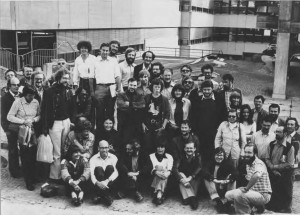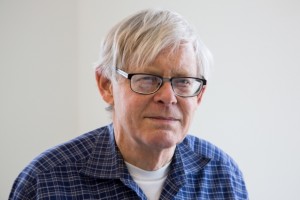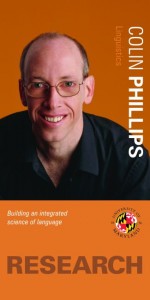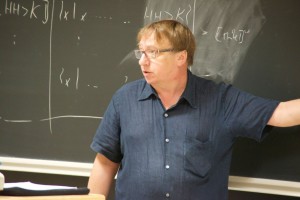
In 1978, semanticists at the University of Konstanz organized a memorable interdisciplinary conference “Semantics from Different Points of View”, bringing together linguists, psychologists, philosophers, and computer scientists in a joint conference on the various ways of studying linguistic meaning. The photograph has Barbara Partee right in the middle (with unicorn shirt). Behind her are Ede Zimmermann and David Lewis. I am on the very left in the first row, next to Max Cresswell, who is next to Arnim von Stechow. In the last row, you see Irene Heim, who was then a graduate student at UMass Amherst, but had been a student of Arnim von Stechow’s in Konstanz before that. Next to Irene Heim is Hans Kamp. Among the other participants are Manfred Pinkal, Renate Bartsch, Dieter Wunderlich, Wolfgang Klein, Urs Egli, Josef Bayer, Rainer Bäuerle, Veronika Ehrich, Eckehard König, Joachim Ballweg, Roland Hausser, and Wolfgang Sternefeld.
I received all of my degrees from the University of Konstanz (MA and Dr. phil – there was no BA in Germany at the time). When I was a student and young researcher in Konstanz in the 1970s, this was an absolutely amazing place, and much of my success in my profession has its roots there. To mention just a few things: even though I was only in my 3rd year of university studies when I arrived in Konstanz (I would have been a mere undergraduate in the US), I was collaborating on a (long-forgotten) 2-volume book on mathematical linguistics after just one year there, and even became (undeservedly) the book’s first author. This wasn’t anything special about me: this was Konstanz in the 1970s. Roughly at the same time, I became one of three members of the Executive Committee running the Konstanz Linguistics department. I was the student member, but my voice had equal weight. I was also a member of the University’s Ausschuss für Lehrfragen (University Committee for Matters of Teaching) – half of the members of this committee were students, the other half were tenured and untenured faculty. The committee was in charge of all important issues relating to teaching. I have been grateful for the education I received in Konstanz ever since – it was pure Utopia – something that wasn’t available anywhere else in Germany (or in the world).




